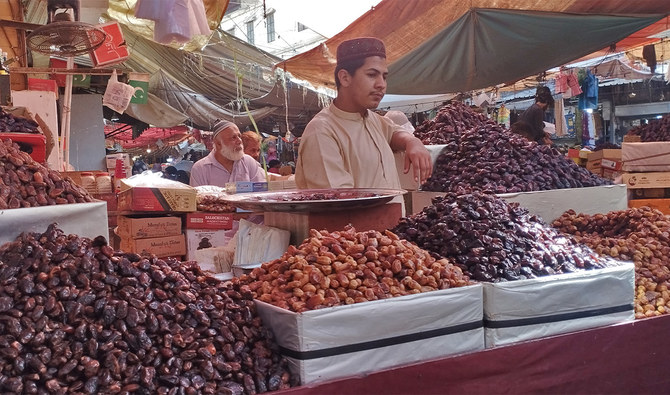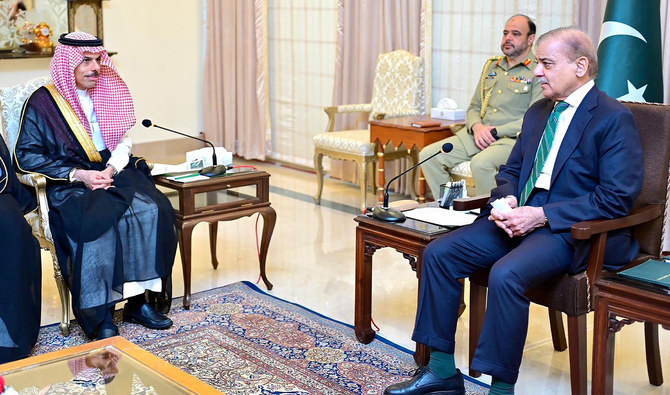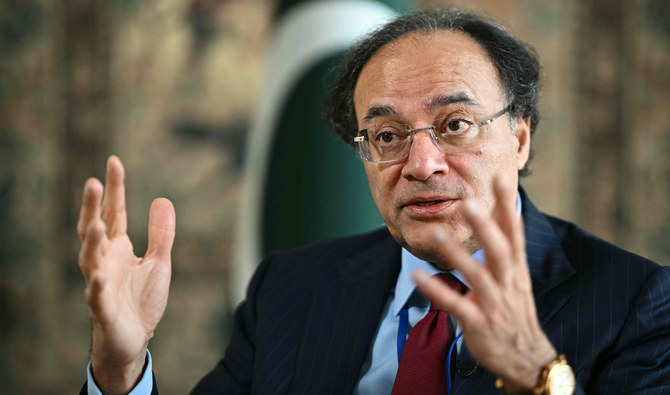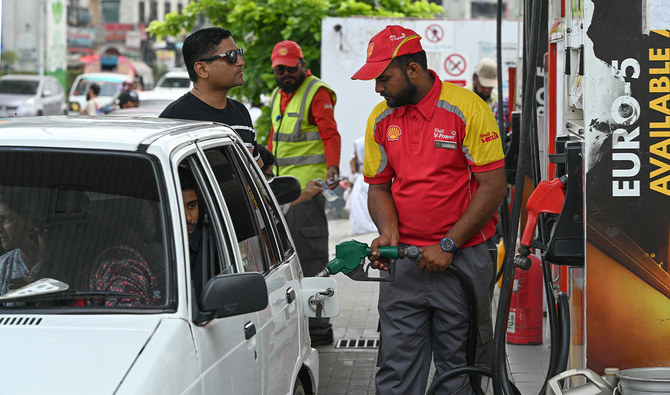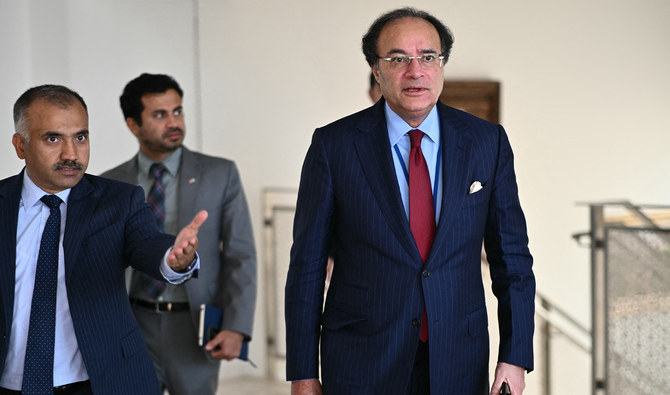KARACHI: Pakistani buyers and sellers started bearing the brunt of rising prices as business activities in the country’s biggest date market picked up pace ahead of the Muslim fasting month of Ramadan.
Hidden behind skyscrapers in Karachi’s Lyari Town, the century-old trade center heavily depends on the holy month when people begin to consume large quantities of dates while beginning their fast in the morning and breaking it with the sunset iftar meal.
However, the prices of dates have significantly surged as the inflation rate in Pakistan jumped to a 50-year high last month when it was recorded at 31.5 percent.
“Everything has become expensive, and date prices have also increased,” Muhammad Ishaq, a businessman, told Arab News while shopping for fruit at the market. “What I bought for Rs350 last year is now being sold for Rs500 per kilogram.”

Date vendors await customers at Karachi's Khajoor market, Pakistan’s biggest date market, on March 21, 2023. (AN photo/Khurshid Ahmed)
Khurram Rafiq, another buyer, agreed with him.
“Inflation is higher this year,” he said. “Last year, dates were available for Rs200 or Rs250. Now, the shopkeepers are selling them for Rs500, Rs550, and Rs600.”
Dates dealers blamed the recent floods and currency depreciation for rising prices, saying the rates of some varieties of the fruit had increased by over 50 percent.
“Due to the high rates, the buying trend is on a decline,” Muhammad Sabir, chairman of the Khajoor Market Association, told Arab News. “Now premium quality dates per maund [40 Kilograms] are being sold from Rs20,000 to Rs22,000. Iraqi dates are not coming, but Zahidi dates from Iran are available for Rs14,000 to Rs16,000 per maund.”
Pakistan is a major producer of dates, with its annual production estimated to be around 500,000 metric tons. The main areas for date cultivation in the country are Sindh and Balochistan provinces. However, much of its own date crops were destroyed in last year’s monsoon floods.
“Local date crops were ruined in floods that affected Balochistan and Sindh,” Hanif Baloch, an importer and dealer of dates, told Arab News. “The Pakistani variety of Aseel and Mazafati dates have not been coming in the market.”
Local growers agreed with Baloch, saying over 80 percent of the country’s date crop had been destroyed by last year’s devastating floods which began in the middle of June.
“The date crop was entirely wiped out as it was the fruiting season,” Mahmood Nawaz Shah, senior vice president of Sindh Abadgar Board, told Arab News. “The lack of post-harvest storage and drying facilities also compounded the problem and led to crop loss.”
Baloch said another factor that jacked up date prices was the country’s import restrictions to control the outflow of dollars. This mostly led the market to rely on the Iranian dates during the ongoing season due to the shared border between the two countries.
“The government has low dollar reserves due to which imports from Iraq could not take place in time,” Baloch said. “While some of the fruit was imported in a small quantity recently, we have mainly been getting Iranian dates via dry port.”
With fast-depleting foreign exchange reserves, Pakistan imposed restrictions to curb its import bill since it faces a major dollar liquidity crunch.
Commercial banks delayed or denied opening of letters of credit (LCs) for imports of goods, and the same thing also happened to the importers of dates in the country.
“The import was banned, though some banks have started opening LCs more recently,” Sabir, chairman of the Khajoor Market Association, said. “However, it was too late. If we open an LC today, the goods will be delivered on the 26th or 27th Ramadan which is useless.”
He also informed that Iran suspended the export of dates last week, adding it was going to build more pressure on the local market.



